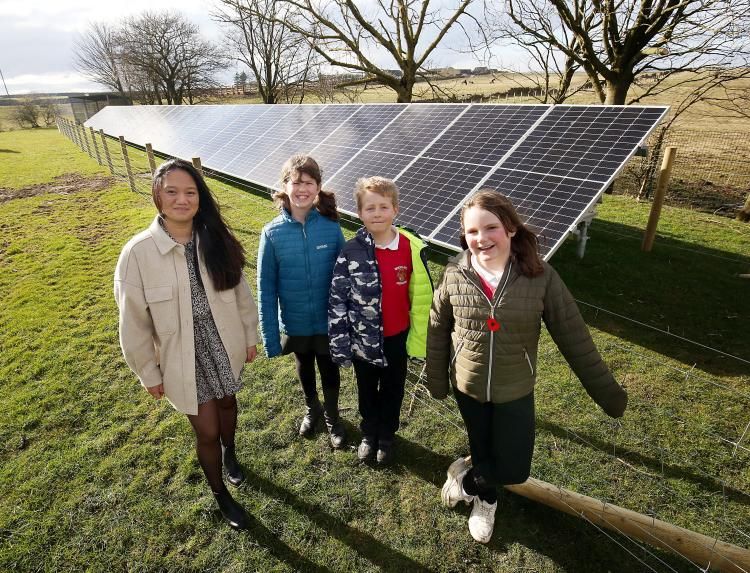Sustainability top of the agenda for Woodland Primary School

Salix Finance was honoured to be invited to attend Woodland Primary School in Teesdale on Thursday 10 March as part of their decarbonisation retrofit project open day. The event, also attended by Celia Dixon, Chair of Governors for the school and Councillor Mark Wilkes of Durham County Council provided an opportunity for Salix team members to see the recently installed energy-efficient technologies that would play a major role in reducing the school’s carbon emissions.
The completed works have allowed the school to use renewable energy, which is in line with its vision to become more sustainable. Woodland Primary School is now the lowest carbon emitting school in County Durham, with the retrofit providing a reduction of 17.2 tonnes of carbon a year.
Previously, the school relied on an oil-fired boiler for its heating and hot water but was identified by Durham County Council for funding as part of Phase 2 of the Public Sector Decarbonisation Scheme (PSDS), due to its single boiler coming towards its end-of-life usage.
Following a successful application, the school was awarded a £113,000 grant funded by The Department for Business, Energy and Industrial Strategy (BEIS) and delivered by Salix Finance. Following its recent completion, the retrofit project has seen the installation of four air source heat pumps (ASHPs), 31 ground-level solar panels and the conversion of the school’s lighting to light emitting diode (LED).
School pupils presented on the importance of being environmentally conscious, displaying great enthusiasm and passion for making a positive contribution towards climate action. Salix was provided with a tour around the school before the pupils teamed up with Councillor Mark Wilkes for some tree planting.


Councillor Mark Wilkes, the council’s Cabinet member for neighbourhoods and climate change said:
The council has acknowledged the need to move away from oil heating systems in rural schools in its Climate Emergency Response Plan published in 2020, with the hope that more buildings across County Durham will be using sustainable energy. The council have also pledged to reduce carbon emissions from their operations by 80% by 2030, contributing to the UK’s net zero targets of 2050. Salix is extremely proud to have delivered this project and to witness the technical changes which have totally transformed the way it produces its energy.
Images supplied by Durham County Council



